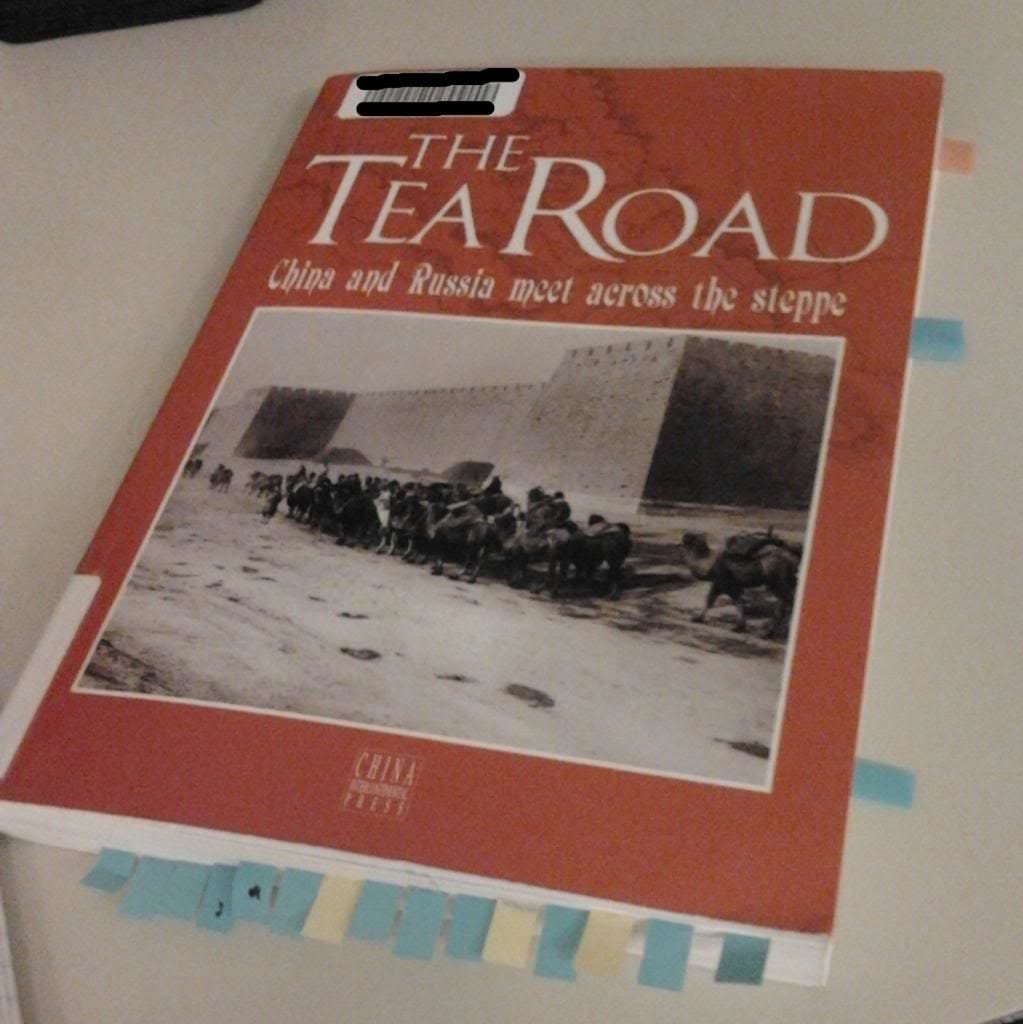I concluded The Tea Road by writing out just under half a dozen pages of notes. Mostly items and subjects I’d like to follow up on, if I could, by finding other resources on the subject. Unfortunately, most of them aren’t related enough directly to the Tea Road for me to string into a linear blog post, unless someone wishes for me to list out a series of random facts about tea (I’ll call a vote on it, and get back to you; I’ll most likely make it anyways, if I lose interest in trying to find out more information on each subject). Although that’s seriously what I’m considering doing.
All in all, I quite liked the book, and despite my earlier qualms (brought up in the first post), I’d definitely recommend it. The author’s story becomes easier to follow as the book progresses, and the habit of reciting the endnotes word-for-word in the text become… less frequent, at least. I’m of the opinion the repeated endnotes are simply the result of an editor who failed to proofread the endnotes alongside the actual text.
Unfortunately, I wish the author could have listed more of her references. At least to make any future research easier.
At any rate, this gets an AJ Stamp of Approval (as if anyone needed one to read it). Avery makes a point of explaining that the book isn’t about tea, but merely uses it as a centerpoint to explore the history of China and its trade industry, specifically its relationship with Russia. And it stays true to that, however that doesn’t make it any less of a very interesting book, and it does have a lot of interesting information about tea.
The way I see it, Avery’s Tea Road is no more about Tea than Okakura’s Book of Tea is. Those who have read the latter will understand.
While on the subject of Tea Routes, however, I’ll mention Searching for the Ancient Tea Horse Road, a book by Sian Yan Yun, which I’d also recommend looking into (I’m going to, if I can find it). It details another route used for tea transport, located much farther south than the Russian route detailed in Avery’s Route.
There are two main–or rather, well-known tea trade routes (although they were used for a multitude of other products as well). Martha Avery’s book details the Tea Trade route, also known as the Siberian Route, or Moscow Route. It’s the Northern of the two routes, and has a specific purpose and connection to trade in Russia, as well as an intimate relationship with Mongolia.
Beginning in China, it cuts north, though Mongolia, into Siberia; eventually, the products would make their way to St. Petersburg.
The Tea Road was a route entirely by land, via caravan, through the frigid north; it is often credited as the origin of the story of “Russian Caravan tea”. Tea transported via this land route were prepared differently than tea destined for the southern, seaward route (which had to be heavier and hardier to survive the salty sea air), and was thus considered much better quality. It’s important in the history of compressed tea, as tea was often compressed for ease of travel via camel.
The other well-known trade route was the Silk Road, and often went south to the Indian Ocean (both routes changed a lot over the years and had many paths–there are maps on Wikipedia for both, I believe). This one’s more well-known, and there’s even a tea company named after it.
I think the most interesting fact that I learned from the book, though, is the history and evolution of the terms “tea” and “chai”. But I think I’ll save that for another, shorter blog post.





18/06/2013 at 1:46 AM
Most of my teabooks ain’t actually about tea. But about the world of tea. That’s what makes them so interesting ;).
19/06/2013 at 2:36 AM
That’s what I like to look for in a book. Although I like books of tea types and the science of tea as well (and articles), but I seem to be leaning towards collecting books on tea culture and history.
18/06/2013 at 6:57 AM
I may well have to get hold of that book
18/06/2013 at 12:20 PM
It seems you have the same problem as me: you read a book on a topic that you like and you end up with more references and books to buy than you could read in a lifetime.
19/06/2013 at 2:32 AM
Unfortunately. I’ll get to them all eventually. It would make things easier, I think, if more came in ebook formats. My bookcase is already piling up… And many more are out of print, or at least difficult to locate.
18/06/2013 at 12:55 PM
@thedevotea You have to hurry, amazon has one less ;)
19/06/2013 at 4:27 PM
@thedevotea @bram In fact, amazon may only have one /left/.
20/06/2013 at 12:08 AM
Actually there were two. But one has been shipped. ;)
It was the only place where I could find a new copy for a decent price so I placed the order directly instead of putting it on my wish list.
20/06/2013 at 4:21 PM
I figured you’d snagged one, I merely meant that after you, thedevotea had better grab the last one before anyone ELSE on teatra.de gets any ideas.
24/09/2013 at 9:46 AM
For those interested in the book:
http://www.purpleculture.net/the-tea-road-p-4067/
Cheaper than my copy :)